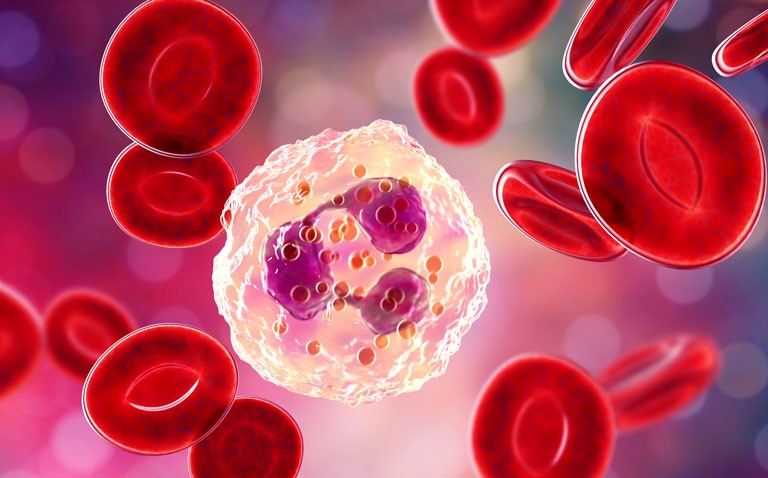Using a machine learning algorithm, researchers have been able to determine a neutrophilic activation signature that predicts critical illness in those with COVID-19.
An adequate host immune response is necessary to fight infection and while the importance of both macrophages and monocytes has been recognised in COVID-19, much less attention has been paid to the role of the neutrophil “first responders”. Previously, investigations by Chinese researchers identified that among those with COVID-19, there was a higher neutrophil to lymphocyte ratio and that this ratio was an independent risk factor for in-hospital mortality. Nevertheless, what is less clear is whether or not greater neutrophil activation was a consequence or a cause of subsequent critical illness in those with COVID-19. In an effort to provide an answer to this question, a team from the Department of Immunobiology, Yale School of Medicine, Connecticut, US, used a machine learning algorithm to predict whether a series of biomarkers released by neutrophils could discriminate between different disease severity in COVID-19. In building the model, the team analysed plasma samples from patients hospitalised with COVID-19 and a positive PCR test result. Plasma samples were drawn over three periods of time, within the first 24 hours of admission and after 4 and 7 days respectively.
Findings
The researchers included 49 adult patients, 40 from an intensive care unit (ICU) with a mean age of 62 years (75% male) and 9 from a non-intensive care ward (nICU). In addition, 13 non-hospitalised patients served as controls. Measurement of 78 different plasma proteins with an immunological function was undertaken and using the statistical technique of principle component analysis, it was possible to show that these markers represented the full spectrum of disease severity. When assessing if the biomarker profile could distinguish between critically and non-critical illness, the researchers applied a machine learning algorithm. This created a model which was able to accurately differentiate between ICU and nICU patients thus demonstrating that the proteomic profile was a reliable signature of critical illness in those with COVID-19. The analysis identified five proteins (all produced by neutrophils), RETN, LCN-2, IL-8, HGF and G-CSF, all of which were related to neutrophil activation. Using the machine learning model, the team also showed that based on only these five biomarkers, it was possible to classify subjects into either ICU or nICU categories.
The authors concluded that the neutrophil profile identified could represent a marker for the development of more severe illness in COVID-19.
Citation
Meizlish ML et al. A neutrophil activation signature predicts critical illness and mortality in COVID-19 Blood Adv 2021 https://doi.org/10.1182/bloodadvances.2020003568










